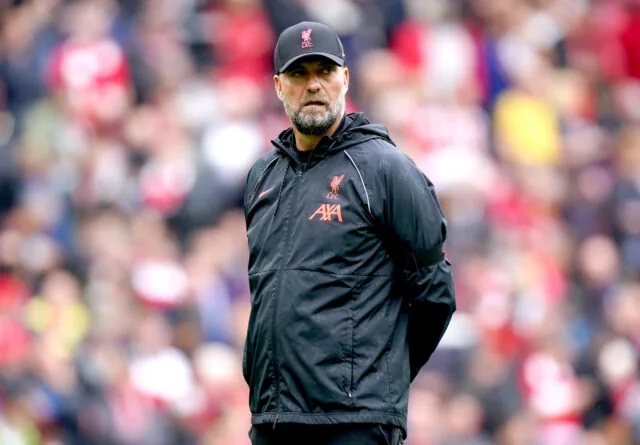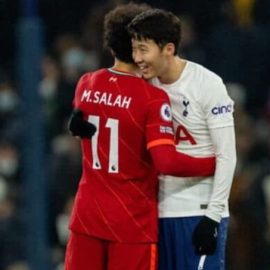The crowd are tense. The home team are losing one nil, and are pushing forward in search of an equaliser. Wave after wave of attack is repelled. Eventually the striker snaps off a shot that goes agonisingly wide. The crowd groan, then, in defiance of their position, launch into a chorus of City Til I Die. Thousands of grown men stand with their arms aloft professing their neverending love for their club, no matter what the situation.
The scene could be from any ground in the UK: Norwich City, Exeter City, Bath City. Or Manchester City, where their Executive Chairman Garry Cook has decreed this chant to be A Bad Thing. That is part of the old negative City, according to the former Nike brand marketeer and steps should be taken to phase it out.
As well as the “bleakness” of City Til I Die, Cook wants to find a way to get rid of the phrase Typical City, so often heard around Eastlands and Maine Road before that. Perhaps while he’s at it he might want to offer free kittens to season ticket holders and employ clowns for the children and cheerleaders on the pitch for matchdays. Actually, we’ll give him the cheerleaders.
On one hand you can see Cook’s desire to create a positive mental attitude around the Blue half of Manchester. On the other, it’s a typical foot-in-mouth comment from the City supremo which shows a complete lack ofunderstanding of fan history and culture, and the chant itself, and ends up coming across like typical blue sky American sport brand thinking.
Of the chant, Cook says: “‘City `til I die’ seems to mean the fans have been through the pain and the agony and were all getting on a bit.
“To build for the future you want eight-year-old kids saying ‘I want to play for City’ because that helps everything. He doesn’t want to think about dying, because he’s just got here.”
Now Cook professes to be a football fan – a Birmingham City supporter – which begs the question how can he get so badly misunderstand one of the most common chants. It’s not about death: City Til I Die means you pledge your support to the club, from cradle to grave, through the good times and bad. It’s a show of loyalty, not a negative chant.
One suggested alternative is City For Life. As rebrands or a familiar institution go, it’s not quite at the level of rebranding Royal Mail as Consignia, but it comes close. Yes, it’s positive, but it just doesn’t have the same power. Close your eyes and imagine: thousands of fans chanting City Til I Die seems more natural and powerful.
It’s more understandable why Typical City would be a saying non gratia at Eastlands. But if Cook is serious about getting rid of the phrase then it should be done by Mark Hughes’ men on the pitch rather than by any marketing or branding drive. And this says about as much about where City currently are than anything else.
There was always the danger that, with their millions, Manchester City could have become the new Chelsea. One of the reasons they haven’t is down to the gallows humour of their fans. The Typical City phrase instantly makes them a much easier club to warm to as a neutral. It means they’re not expecting to win everything straight away, like Chelsea, or suddenly develop a belief it’s their god-given right to win everything, like their red neighbours.
The fans may have retained their sense of humour but Cook’s marketing speak sits uneasily with this. There’s nothing wrong about wanting to better yourself but without the humour and chants like City Til I Die, there’s the distinct possibility that Manchester City could morph into a bizarre and rather disturbing hybrid of Chelsea and Manchester United.
Other fans will always be jealous of clubs with money, but it hardly helps when Cook acts as a conduit for this by coming up with the type of ideas or phrases that scream ‘sports marketing’ or ‘corporate brainstorm’. Or, worse, Prince Phillip on a bad day.
First off there was the suggestion that the Premier League should be cut to around 14 clubs, with no relegation, which happened to be just enough to ensure City’s survival. In fairness, Bolton’s chairman Phil Gartside came up with a similar idea and thankfully both were treated with the disdain they deserved.
Then there was his assertion that Milan had ‘bottled’ the handling of their attempted bid for Kaka, a statement so crass it achieved the impressive feat of making Silvio Berlusconi look good, when all that was needed was a small statement expressing disappointment but respecting Kaka’s wishes to remain at Milan (although these weren’t so strong that he didn’t fancy running away to Madrid).
There’s also the time he was asked about ex-chairman, serial human rights abuser, and now convicted fraudster Thaksin Shinawatra, and came up with the legendary response: “”Is he a nice guy? Yes. Is he a great guy to play golf with? Yes. Does he have plenty of money to run a football club? Yes. I really care only about those three things. Whether he is guilty of something over in Thailand, I can’t worry … I worked for Nike who were accused of child-labour issues and I managed to have a career there for 15 years. I believed we were innocent of most of the issues. Morally, I felt comfortable in that environment.”
There’s no word if he still heads off with his nine-iron to meet Thaksin chinwag over topics that aren’t police repression, but you’d suspect not seeing as Thaksin’s no longer involved with the club (Sheikh Mansour quietly dropped the ex-Thai Prime Minister from any official role not long after Thaksin was banned from entering the UK).
Manchester City fans will argue this is all in the past, and this is certainly true (and they should be grateful Shinawatra is no longer involved). But Cook keeps on coming up with more reasons to cringe at his complete lack of feeling for any kind of football history.
In fairness to City, Cook’s words would be just as toe-curling at any club, be it West Brom, Leeds United or Nantwich Town. It’s just unfortunate that, combined with the takeover (and Cook pre-dates this) it gives rival fans an easy target for mocking the club, and more ammunition to those who view City’s spending spree as evidence of the death of football, which it really isn’t as football did a good job of doing that a long time ago.
It’s worth pointing out, though, that just as the man in the Arab headdress dancing outside Eastlands is probably only representative of 0.01% of City’s fanbase, so Cook himself isn’t necessarily responsible for all the ills and sins of City, and with his marketing contacts and experience has, as like, proved valuable to City in ways that don’t involve public speaking.
And Manchester City, for all the laughing and snide remarks, some justified, some not, are putting together a team that could well shake up the Big Four this season, which isn’t necessarily a bad thing. They may have launched several ill-conceived and plan stupid transfer bids but the team sheet, on paper, looks strong.
Acquiring Carlos Tevez and potentially Emmanuel Adebayor gives them a fearsome frontline, and it’s only really a world-class central defender that is lacking. There may be plenty of discomfort at the way it’s been done, but such will always be the way with big spending clubs.
Those who are truly City Til I Die will be there to the end even if it all fails spectacularly. And those are the fans any club needs, and should be encouraged, not turned away.
On the pitch, then, the team building phase is nearly complete for Manchester City. Off the pitch, however, the next priority purchase should be spending a fiver on decent quality gaffer tape at B&Q for Garry Cook’s mouth.
Add Sportslens to your Google News Feed!






